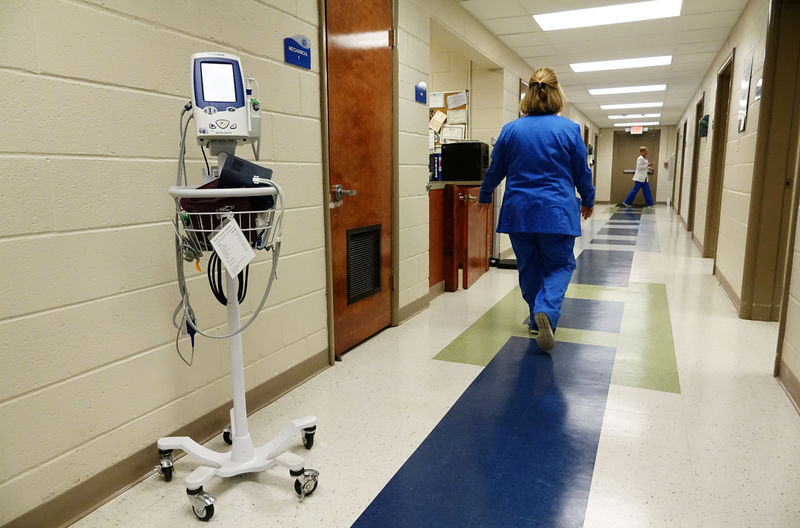(Reuters) - U.S. healthcare spending recovered in 2018 after two consecutive years of decline, a government health agency reported on Thursday.
The total national health expenditures last year grew 4.6% to $3.6 trillion, or $11,172 per person, boosted by faster growth in private health insurance and government-sponsored health insurance programs, the U.S. Centers for Medicare and Medicaid Services (CMS) said.
The federal government and households were the largest sponsors, each contributing 28% to the total spending in the year.
The cost of health as a share of the economy decreased 0.2 points to 17.7% in 2018.
Increased net costs drove up private health insurance spending by 5.8% to $1.2 trillion in 2018, faster than the 4.9% growth in the year before.
Consumers also paid more out-of-pocket for retail prescription drugs, medical equipment and dental services last year, offseting a fall in hospital care expenses, CMS said.
Non-price factors such as the use and mix of drugs consumed drove up spending on retail prescription drugs, which grew 2.5% in 2018 to $335 billion, accounting for 9% of total healthcare spending.
Last February, the CMS had projected U.S. healthcare spending to rise 5.3% in 2018, reflecting rising prices of medical goods and services and higher Medicaid costs.

As more U.S. citizens become eligible for Medicare, the federal health insurance program for people aged 65 and above and the disabled, health spending in the country will grow at an average rate of 5.5% every year from 2018 over the next decade, CMS said earlier this year.